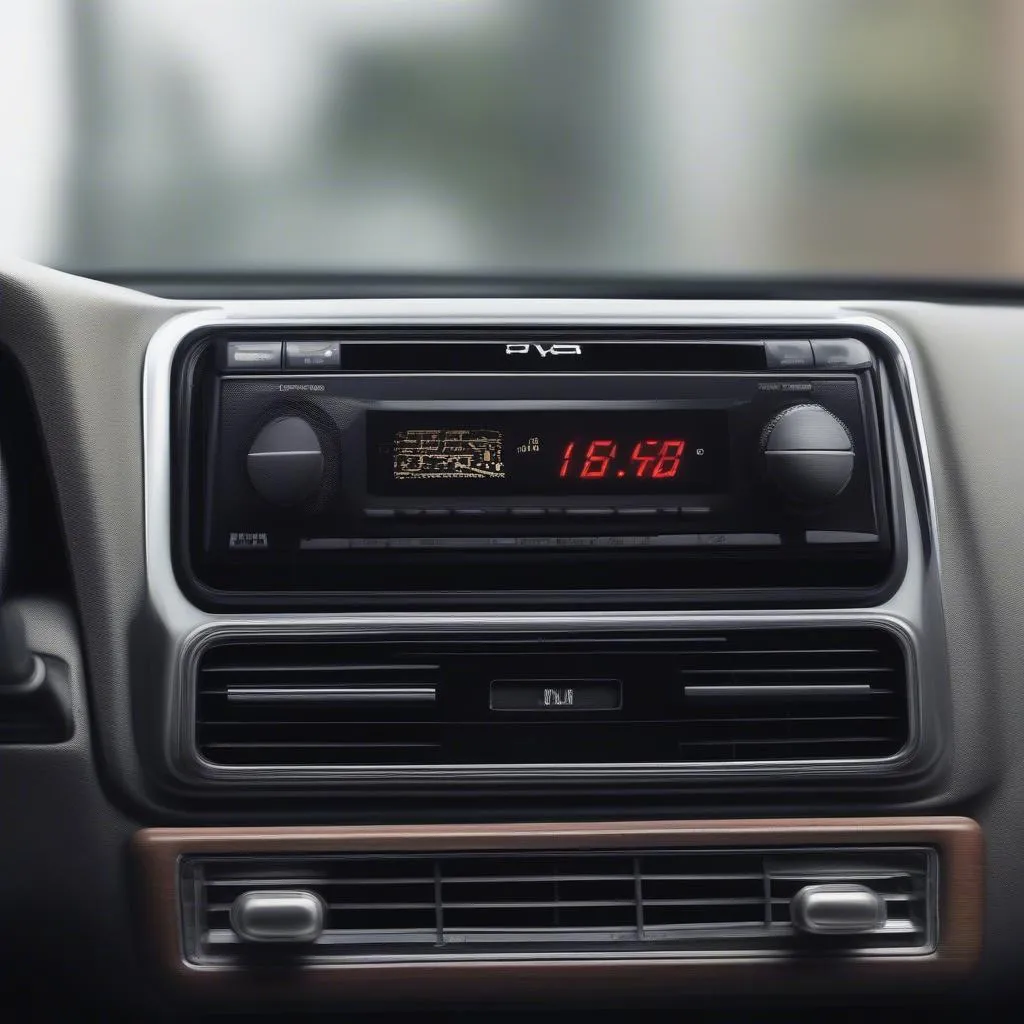The parking brake warning light on your Honda Civic is a safety feature that illuminates to alert you of potential issues with your braking system. Ignoring this warning light can lead to safety hazards and potentially more extensive damage to your vehicle.
Common Causes of a Civic Parking Brake Warning Light
There are several reasons why your Honda Civic’s parking brake warning light might be on, even if you haven’t engaged the parking brake:
- Engaged Parking Brake: The most obvious reason is that the parking brake is not fully released. Double-check your parking brake lever or pedal to ensure it’s down completely.
- Low Brake Fluid: Your Civic’s braking system operates on hydraulic pressure provided by brake fluid. If the fluid level is low, it can trigger the warning light.
- Worn Brake Pads: As brake pads wear down, it can affect the brake fluid level, potentially triggering the warning light.
- Faulty Parking Brake Switch: The parking brake system relies on a switch to detect whether the brake is engaged or disengaged. A faulty switch can send a false signal, illuminating the warning light.
- Hydraulic System Issues: Leaks, air in the brake lines, or other problems within the hydraulic system can also cause the parking brake warning light to come on.
- ABS Problem: While less common, issues with your Civic’s Anti-lock Braking System (ABS) can sometimes trigger the parking brake warning light as they share warning systems.
Troubleshooting Your Civic’s Parking Brake Warning Light
Before you visit a mechanic, here are a few troubleshooting steps you can try:
- Check Your Parking Brake: Ensure the parking brake lever is fully down or the pedal is fully released. Sometimes, a slight engagement can trigger the light.
- Inspect Brake Fluid Level: Locate the brake fluid reservoir under the hood of your Civic. The reservoir will have markings indicating the minimum and maximum fluid levels. If the fluid is below the minimum, add the appropriate brake fluid (check your owner’s manual for the recommended type).
- Examine Brake Pads: Visually inspect your brake pads through the wheel spokes. If they appear excessively worn or you hear a grinding noise when braking, it’s time for a replacement.
- Test Drive: After checking the parking brake, fluid level, and brake pads, take your Civic for a short test drive. Pay close attention to the warning light. If it remains on or flickers, further diagnosis is required.
When to Consult a Professional
If the troubleshooting steps don’t resolve the issue or you suspect a more serious problem, it’s crucial to consult a qualified mechanic specializing in Honda vehicles. They can accurately diagnose the root cause of the warning light using specialized diagnostic tools.
“Ignoring a parking brake warning light can lead to further damage and compromise your safety,” says John Smith, a senior Honda technician with over 20 years of experience. “It’s always best to err on the side of caution and have a professional assess the situation.”
Preventing Future Parking Brake Issues
- Regular Maintenance: Adhering to the recommended maintenance schedule in your Civic’s owner’s manual, including regular brake inspections and fluid flushes, is crucial for preventing brake issues.
- Address Warning Lights Promptly: Never ignore warning lights on your dashboard. Addressing them promptly can prevent minor problems from escalating into major repairs.
- Avoid Riding the Brakes: Constantly keeping your foot on the brake pedal, even lightly, can lead to premature wear and tear on your brake pads and other components.
Conclusion
The parking brake warning light in your Honda Civic is a crucial safety indicator. By understanding the common causes, you can take the appropriate steps to troubleshoot and address the issue. If the problem persists, don’t hesitate to seek professional assistance. Regular maintenance and prompt attention to warning lights are essential for ensuring your Civic’s braking system operates safely and efficiently.
FAQs about Civic Parking Brake Warning Lights
Q: Can I still drive my Civic if the parking brake warning light is on?
It’s not recommended to drive your Civic if the parking brake warning light is on, as it indicates a potential issue with your braking system. Driving with compromised brakes can be dangerous.
Q: How much does it cost to fix a parking brake warning light issue?
The cost to fix a parking brake warning light issue can vary greatly depending on the underlying cause. Simple fixes like adding brake fluid are inexpensive, while repairs like replacing a faulty ABS module can be costly.
Q: How often should I check my Civic’s brake fluid?
It’s a good practice to check your Civic’s brake fluid level at least once a month and more frequently if you notice any changes in brake pedal feel or responsiveness.
Q: Can I top off my Civic’s brake fluid myself?
Yes, you can top off your Civic’s brake fluid yourself. Refer to your owner’s manual for the correct type of brake fluid and instructions on how to locate and refill the brake fluid reservoir.
Q: How long can I drive with my parking brake slightly engaged?
You should never drive with your parking brake even slightly engaged. This can lead to severe damage to your braking system, including overheating, premature wear, and potential failure.

